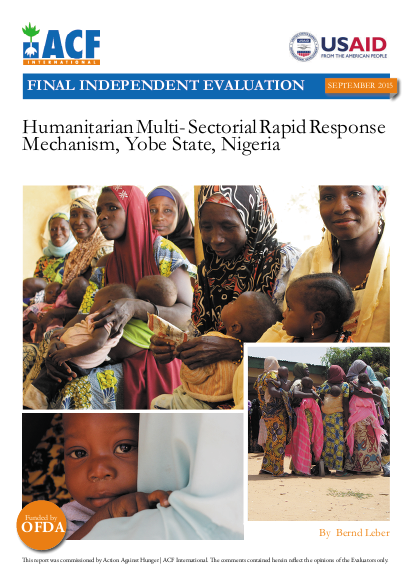
ACF started the Nigeria Mission in 2010 to respond the complex emergency situation caused by religious conflict, weak care practices, and malnutrition in the area, especially in Northern parts of the country. In Yobe state, Nigeria, ACF is implementing a one-year project with the overall goal of providing critical humanitarian assistance to victims of the complex emergency (e.g. Internally Displaced Persons, as well as families hosting IDPs), using market-sensitive and capacity building approaches. Intervention logic suggested to bring about this objective with three specific objectives, which at the same time describe the three project sectors:
- To prevent disease outbreaks and help those displaced by conflicts or disaster to carry out everyday requirements through the distribution of Non Food Items (NFIs); - To increase access to water and sanitation through emergency WASH interventions to victims of complex emergencies (Insurgency, natural disasters and waterborne/ communicable diseases; - To increase the affected population’s short-term purchasing power, protect and restore their livelihood.
The purpose of the evaluation is to assess the adequacy of ACF’s intervention, as well as the level of effectiveness of the three sectors of the project, following a set of detailed evaluation question which are oriented by the international standard of the DAC criteria. The evaluation was carried out from 4 - 21 July 2015, both in Abuja and Damaturu, and including field visits to all three areas of project intervention. Direct beneficiaries interviewed included IDPs and host families, but also government institutions on local and state level were included in the evaluation.
